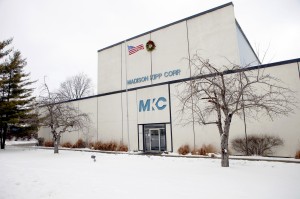Long-term air, soil and groundwater PCE contamination of the residential area surrounding Madison-Kipp Corporation forced local residents to file suit on October 20, 2011. The Cap Times reports that Madison-Kipp has known since 1994 of its responsibility to manage and clean up contaminated groundwater.

Since the Department of Natural Resources (DNR) first notified the company of this responsibility, evidence of PCE in the air, soil and groundwater continued to accumulate. The affected area greatly expanded in size, including to the area under some residents’ homes. Little was done by the DNR to enforce its requests. It was only after a neighborhood group filed notice in 2011 of its intention to take legal action that the DNR took a stronger stand against the company.
Although the DNR claims the 90-day notice of intent to file suit did not force its hand, local homeowners grew weary of waiting for the agency to take action. Homeowners became increasingly fearful of the health issues posed by the PCE contamination. Health fears were joined by a sharp reduction in home values and reluctance of local lenders to offer mortgages. This bad news, plus the weak response of the DNR, pushed residents to file suit. On January 20, 2012, attorneys for the homeowners petitioned to certify a class action for owners of 34 houses next to the Kipp-Madison plant.
PCE and Parkinson’s Disease
The U.S. Environmental Protection Agency (EPA) supports the health fears of the residents. The EPA outlines the well-established health risks posed by Tetrachloroethylene (Perchloroethylene), or PCE. Acute effects include respiratory distress and damage to the bladder and kidneys. Neurological effects consist of reversible mood and behavioral changes, impaired coordination, dizziness, headache, sleepiness, and unconsciousness. Reproductive issues have been reported. Some studies suggest a higher risk of certain cancers in people exposed.
The Environmental Health News discusses a link between exposure to PCE and Parkinson’s disease, even if the exposure was brief and many years earlier. Research done on male twins where only one twin had exposure to PCE clearly showed a connection between PCE exposure and an increased risk of developing Parkinson’s disease, usually with 40 or more years between exposure and development of the disease.
Protect Your Neighborhood
Plaintiffs in the Kipp-Madison case might not have pursued legal remedies had one of them not stumbled on a legal blog called Pollution Law Watch where attorney Shawn Collins headlined a post: “You can shame your government into doing something about contamination in your neighborhood.” The Kipp-Madison plaintiffs wisely took their damaged lives into their own hands when they filed suit. Though the DNR dropped the ball, private citizens are moving forward to remedy injuries 20 years in the making.
Contact Us
If you or anyone you know suffers from health problems or property value reduction because of contaminated soil, air or water, you may be entitled to receive compensation for illegal contamination. Our experienced attorneys support your right to live free of such serious risks. Contact us to schedule a free consultation today to protect the health and well being of your loved ones.


